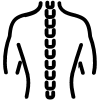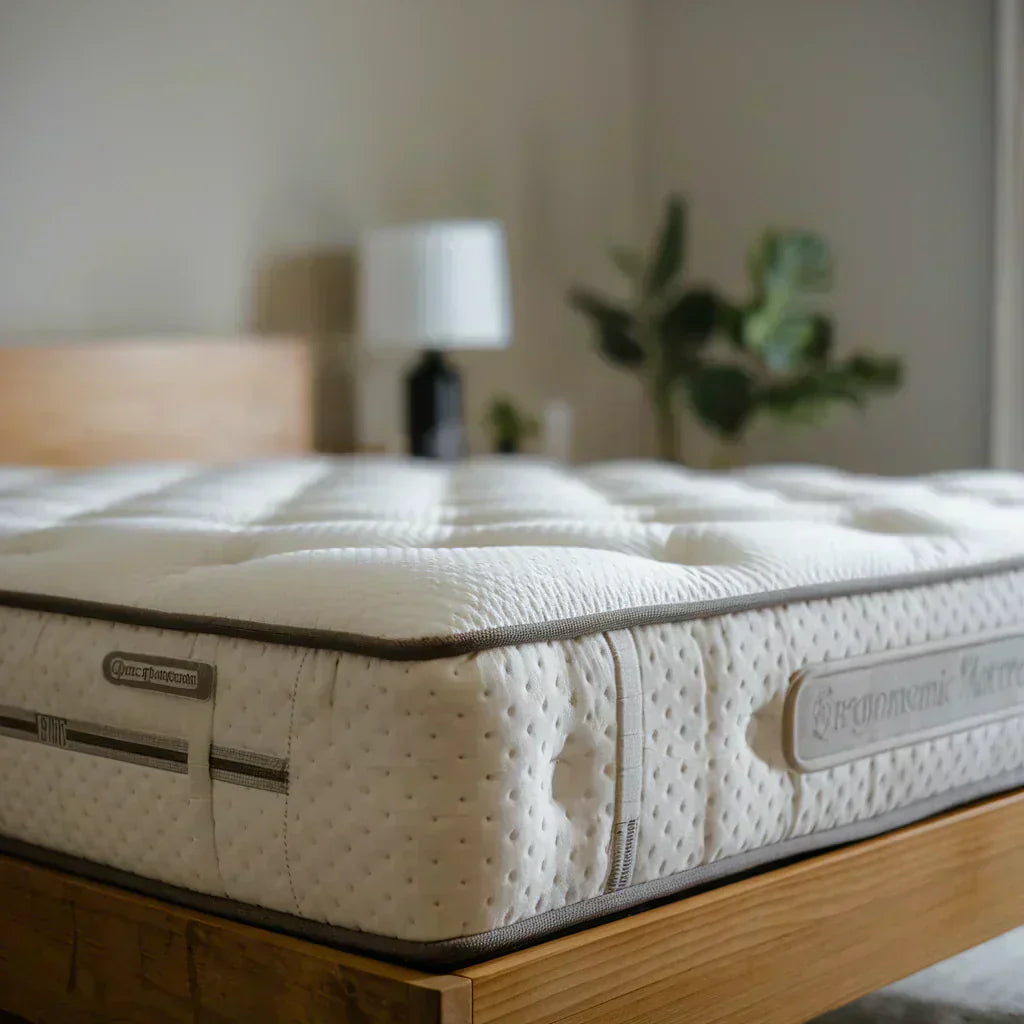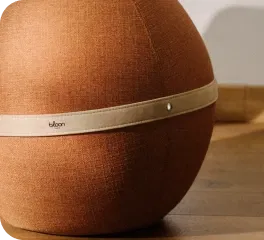Do you also suffer from back pain while you sleep? You're probably wondering which mattress to choose for back pain? In this guide, we'll help you choose the right mattress to relieve your back pain and improve the quality of your sleep.
Why does my back hurt on my mattress?
Many people experience back pain due to their mattress, and this can be due to a variety of causes. A mattress that's too old or not suited to your body shape and sleeping position can create pressure points and misalignment of the spine, leading to pain. In this article, we'll explore the different reasons why you might experience back pain on your mattress and how to fix it.
Your mattress is too old
If you've had the same mattress for more than 7 to 10 years, it's probably time to replace it. Mattresses have a limited lifespan due to natural wear and tear, as well as the bacteria and dust mites that accumulate over time. An old mattress can lose its support and firmness, which can lead to poor spinal alignment and back pain.
Your mattress is too soft or too firm
Another factor to consider is the firmness level of your mattress. If your mattress is too soft, your body may sink too deeply into it, creating an excessive curve in your lower back. Conversely, if your mattress is too firm, it won't allow your shoulders and hips to sink in enough to maintain a good sleeping position. Either way, this can lead to back pain.
Your sleeping position
Your sleeping position can also impact your back pain. If you sleep on your stomach, your spine is often arched, which can cause tension and pain in your lower back. The best position to prevent back pain is to sleep on your side with a pillow between your knees to maintain proper spinal alignment.
How to choose a mattress for back pain?
Mattress type
Choosing the right mattress type is crucial. Memory foam or latex mattresses are often recommended for their ability to conform to the body's contours and provide even support. Pocket springs or air mattresses can also be a good option, but it's important to choose a model with different firmness zones to maintain proper spinal alignment.
Firmness level
A mattress that's neither too firm nor too soft is ideal for promoting proper spinal alignment. A mattress that's too soft can cause your back to slump, while one that's too firm may not provide enough pressure point support. If you prefer a firmer mattress, consider adding a mattress topper for added comfort without sacrificing support.
Morphology and sleeping position
Your body shape and sleeping position also influence mattress choice. For example, back sleepers might benefit from a firmer mattress, while side sleepers might prefer a softer mattress to support their shoulders and hips. Additionally, if you're larger, a mattress with a higher firmness may be necessary to prevent excessive sinkage.
Mattress technologies and materials
Different technologies, such as pocket springs or memory foam, offer varying levels of support and comfort. Materials like natural latex are valued for their durability and ventilation.
Which mattress for your back pain?
Mattress for lower back pain
For lower back pain, a firm mattress with enhanced lumbar support can help relieve pain. Memory foam mattresses with a lumbar support zone are also a good option to maintain the natural curve of the back.
Mattress for sciatica
To relieve sciatica pain, choose a mattress with good elasticity to reduce pressure on the sciatic nerve. Memory foam or latex mattresses can help distribute body weight evenly and reduce pressure points.
Mattress for arthritis
People with arthritis will benefit from a mattress that offers good cushioning, such as memory foam mattresses. Pocket spring mattresses can also be a good option, as they provide personalized support and can help relieve pressure on painful joints.
Mattress for scoliosis
A mattress that maintains proper spinal alignment is essential for people with scoliosis, meaning a firm yet flexible mattress is essential. Latex mattresses can be a good choice for their even support and flexibility. It's also important to consult your doctor or physical therapist for recommendations specific to your condition.
Mattress for back and neck pain
For combined back and neck pain, choose a mattress that distributes weight well and supports the natural curvature of the spine. Memory foam mattresses or mattresses with a gel layer can help relieve pressure points and provide good neck support.
Tips for Sleeping with Back Pain
Recommended postures for sleeping with back pain
Sleeping on your back with a pillow under your knees or on your side with a pillow between your knees can help reduce back pain. Avoid sleeping on your stomach, as this can cause poor back posture.


Common mistakes to avoid
Avoid sleeping on your stomach, as this can exacerbate back pain. Also, make sure your mattress is of good quality and replace it if it's too old. An ill-fitting pillow can also aggravate pain, so make sure you have good support for your head and neck. Also, avoid staying in the same position for too long during the night.
Accessories for sleeping better with back pain
Ergonomic pillows
Investing in an ergonomic pillow can help you maintain proper body alignment throughout the night. Ergonomic pillows are available in different shapes and thicknesses to suit your specific needs. Some pillows are designed specifically for people with back pain.
Mattress topper
Adding a mattress topper can provide extra comfort and extend the life of your mattress. Choose a memory foam topper for better weight distribution and less pressure on sensitive areas.
Adjustable mattress
An adjustable mattress can be beneficial for people with back pain because it allows you to easily change the position of the bed as needed. By slightly tilting your upper body, you can relieve pressure on your back.
Lumbar cushions
Lumbar cushions provide additional support for your lower back, whether in bed or during the day in a chair. Choose a cushion with an ergonomic shape to fit the natural curve of your back.
The 5 Best Mattresses for Back Pain (2024)
-
Emma Original - This memory foam mattress provides optimal support for the back and joints, while evenly distributing body weight.
-
Ikea Morgedal - A pocket spring mattress with a memory foam layer for personalized support and good ventilation.
-
Tediber - A memory foam and natural latex mattress, offering firm yet comfortable support for people suffering from back pain.
-
Bultex Nano - This mattress offers innovative technology with patented memory foam that relieves pressure on the back and reduces movement during the night.
-
Simba Hybrid - A hybrid mattress with pocket springs and memory foam for optimal body support and improved air circulation.
-
Tempur Original Supreme - This high-density memory foam mattress conforms to the body's curves to relieve back pressure and provide optimal support.
How to maintain your mattress?
Turn and rotate your mattress regularly to distribute wear and tear. Use a protective cover to prevent stains and dust buildup. Ventilate your bedding to avoid moisture and allergens. And don't forget to regularly clean your sheets and pillowcases for clean and hygienic bedding. By following these tips, you can enjoy a comfortable and restful sleep while taking care of your back.
In conclusion, choosing the right mattress is essential for alleviating back pain and improving sleep quality. Options such as memory foam, latex, or pocket spring mattresses can provide the necessary support for various conditions such as sciatica, arthritis, or scoliosis. Additionally, adopting proper sleeping postures and investing in accessories such as ergonomic pillows and mattress toppers can enhance comfort.
FAQ: Which mattress for back pain?
Which mattress for back pain?
For back pain, choose mattresses that offer good support without being too rigid.
What type of mattress should you choose when you have back pain?
Memory foam or latex are good choices to distribute your weight evenly.
When you have back pain, should you have a hard or soft mattress?
A medium firmness level is generally recommended. Avoid mattresses that are too soft, which can cause poor back posture.
How do you know if it's the mattress that's hurting your back?
If your pain goes away after sleeping elsewhere, your mattress could be the cause of your back pain.
Which mattress is best for back pain?
A mattress that provides appropriate support and adapts its firmness to your personal needs. This can vary from person to person, so it's important to find the one that best suits your body. If in doubt, consult a healthcare professional.
Is a hard mattress good for your back?
Not always, a mattress should prevent pressure points while supporting the spine. A mattress that is too hard can cause muscle tension and increase back pain.
Why does my bed hurt my back?
Your mattress may be worn out or unsuitable for your body shape and sleeping preferences.












